News from the Editor's Desk - August 2018
Supporting the ABC
ABR, like many writers and media organisations around the country, worries about the future of independent journalism, especially in this trumpacious age, often so hostile to reason and open commentary. We share many Australians’ concerns about the health and viability of the ABC. The threats are myriad and sustained. Funding cuts (by all regimes), political interference, and daily taunts from News Corp have weakened the organisation. Recently, the Liberal Party’s Federal Council voted to privatise the organisation. This would surely spell the beginning of the end for the national broadcaster.
Auntie is far from perfect (which media organisation is?). Many of us grimace through those comedic Wednesdays; local drama is scarce; and ABC Classic FM is but a shadow of itself: populist, unedifying, and maddeningly nice. But consider what the ABC has contributed to our culture, our educational system, our democracy since 1928, and try to imagine an Australia without Four Corners, Q&A, Background Briefing, Rear Vision, the 7.30 Report, AM and PM, not to mention Geraldine Doogue, Fran Kelly, and good old Jim Maxwell, to name but a few.
We take things for granted in the Lucky Country, but can we really be sure that the ABC will be around in 2028 to celebrate its centenary – searching, unfettered, well resourced? More and more people think not and have begun to lobby government. Major rallies have taken place around the country. In this issue,
Ranald Macdonald (a spokesman for ABC Friends) writes about the present threat. Elsewhere, one hundred writers, artists, commentators, and public figures have signed ABR’s Open Letter supporting the ABC.
Jolley Prize
The ABR Elizabeth Jolley Short Story Prize, now in its eighth year, is worth a total of $12,500. This year we received about 1,200 entries from thirty-five countries. The judges – Patrick Allington, Michelle Cahill, and Beejay Silcox – longlisted fourteen stories (all of which are listed on our website) before shortlisting three of them: ‘Vasco’ by Claire Aman (NSW), ‘Between the Mountain and the Sea’ by Sharmini Aphrodite (Singapore); and ‘Ruins’ by Madelaine Lucas (NSW/USA). They appear in this issue.
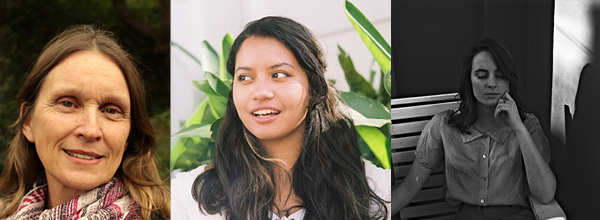 Claire Aman (photograph by Ravi Watt-Nersesian), Sharmini Aphrodite (photograph by Varkur), and Madelaine Lucas
Claire Aman (photograph by Ravi Watt-Nersesian), Sharmini Aphrodite (photograph by Varkur), and Madelaine Lucas
The judges commended three other stories: ‘Joan Mercer’s Fertile Head’ by S.J. Finn (Victoria); ‘Hardflip’ by Mirandi Riwoe (Queensland); and ‘Break Character’ by Chloe Wilson (Victoria). These stories will be published online in coming months.
The judges said this of the overall field: ‘We were privileged to read this teeming, diverse mass of unpublished short fiction from around the world. A number of stories, from the realist to the absurd, captured our attention with their conceptual ambition and original conceits. But the stories that sustained our interest created worlds that felt complete; offered genuine representations of different peoples, places and cultures; celebrated the human spirit, warts and all; were bold and funny, with language that sang; made us think and rethink; and offered endings that shook, surprised or satisfied us.’ (Their remarks on the shortlisted stories will follow in September, with the name of the winner.)
If you are in Melbourne on Monday, 20 August, join us at fortyfivedownstairs (CBD) for the Jolley Prize ceremony – always enjoyable, if tense-making for the authors (only the judges know the winner until he or she is named on the night). This is a free event and all are welcome, but bookings are essential, as this is a popular occasion: This email address is being protected from spambots. You need JavaScript enabled to view it.
Complete our readers survey
Australian Book Review is a fast-changing and responsive cultural magazine with a growing international profile. The magazine now offers many more features and programs than it did ten years ago – and there are more changes to come.
We love hearing from readers as to what they like about Australian Book Review – whom they enjoy reading; what they would like to see more (or less) of; what concerns them most as engaged readers and citizens. We look forward to hearing from readers of all kinds (ABR subscribers, non-subscribers, website browsers, social media followers, devotees, occasional readers) as to how they rate the magazine and how they think we can improve it. The survey takes about five minutes to complete. Feel free to skip any questions that don’t interest you.
The survey is totally anonymous – unless you want to be in the running for one of two five-year complimentary subscriptions to ABR Online (in which case we will need your name and email address). Click here to take the reader survey.
Consider this
Stephen Spender once said of a certain antipodean upstart who had just appeared in the vaunted Penguin Modern Poets series: ‘Who is Peter Porter?’ This was in 1962. Although the Brisbane-born poet was in his early thirties and already a prolific poet, he was relatively new to London – where he would continue to live until his death in 2010 – and he was still audibly and complicatedly Australian.
No one ever said of Porter’s great influence, ‘Who is W.H. Auden?’ – certainly not Stephen Spender, who remained captivated by his brilliant contemporary for the rest of his life. Auden, born in 1907, seems to have been famous from the outset. Celebrated while still at Oxford, he was cited in his fellow students’ essays. Grudgingly, F.R. Leavis said, ‘the undergraduate notability became a world figure overnight’. Faber published Auden’s first volume of poems when he was twenty-two, soon after T.S. Eliot had published a play of his in Criterion.
Auden, one of the great disapprovers, objected to lives of artists (‘I do not believe that knowledge of their private lives sheds any significant light upon their works’), but in his case there have been many biographers, including Humphrey Carpenter, Richard Davenport-Hines, and Peter Porter’s Queensland contemporary Charles Osborne. We also have Auden’s silly table-talk, his verbal frothings, his inimitable essays and aphorisms. Peter Porter, reviewing the Davenport-Hines, described Auden as ‘the greatest English (as distinct from English-speaking) poet since Tennyson’.
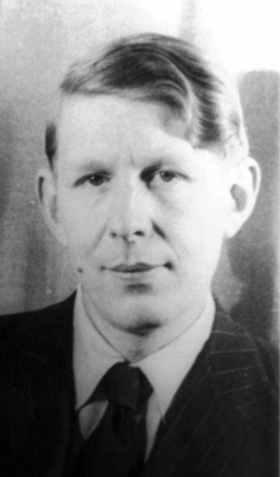 W.H. Auden (Wikimedia Commons)Auden – unwise in love perhaps – was cannier in his executorial choice. Edward Mendelson was in his twenties when Auden tapped him to be his literary executor. Mendelson, now professor of English and Comparative Literature at Columbia University, has written extensively about Auden ever since. Key works include the six-volume The Compete Works of W.H. Auden: Prose and those indispensable commentaries, Early Auden (1981) and Later Auden (1999). Mendelson is not done yet. Early Auden, Later Auden: A critical biography (Princeton University Press [Footprint], $84.99 hb), his latest study, revises and augments those previous editions. Seumas Perry, a professor of English at Oxford University, reviews it brilliantly in LRB (10 May 2018).
W.H. Auden (Wikimedia Commons)Auden – unwise in love perhaps – was cannier in his executorial choice. Edward Mendelson was in his twenties when Auden tapped him to be his literary executor. Mendelson, now professor of English and Comparative Literature at Columbia University, has written extensively about Auden ever since. Key works include the six-volume The Compete Works of W.H. Auden: Prose and those indispensable commentaries, Early Auden (1981) and Later Auden (1999). Mendelson is not done yet. Early Auden, Later Auden: A critical biography (Princeton University Press [Footprint], $84.99 hb), his latest study, revises and augments those previous editions. Seumas Perry, a professor of English at Oxford University, reviews it brilliantly in LRB (10 May 2018).
Perry, who is beginning a life of Auden, is fascinated by his corrugated face, which Auden himself likened to ‘a wedding cake left out in the rain’. (Perry notes that only a poet, only someone ‘rather sad’, would think of leaving a wedding cake out in the rain.) Auden’s visage – possibly the result of a medical condition called Touraine-Solente-Golé syndrome, not to mention a phenomenal addiction to Player’s cigarettes and Benzedrine – attracted the attention of famous sculptors, photographers, and painters. David Hockney, who drew him, quipped, ‘I kept thinking, if his face looks like this, what must his balls look like.’
Eureka!
Meanwhile, Morag Fraser – former editor of Eureka Street, where she often published him – is writing the biography of Peter Porter, whose phenomenal archive now rests in the National Library of Australia. In a country with a sorry dearth of poets’ biographies, what a book this promises to be.
Admirers of Morag Fraser’s artful journalism should not miss her exceptional review of Berlioz’s L’Enfance du Christ (recently performed by the MSO), which appears in the ABR Arts section of our website.
Porter Prize
Entries are now open for the 2019 Peter Porter Poetry Prize. This is the fifteenth time we have offered the Porter Prize. Past winners have included Stephen Edgar, Tracy Ryan, Judith Beveridge, and Michael Farrell (who has a poem in this issue).
The Porter Prize is worth a total of $8,500, and here we thank Morag Fraser and all our ABR Patrons for their support. The winner will receive $5,000; the runner-up, $2,000; the three other shortlisted poets will each receive $500. All five shortlisted poems will appear in the March 2019 issue of ABR.
The judges on this occasion are Judith Bishop (who has won the Prize twice, the only person to do so, yet), Paul Kane, and John Hawke, ABR’s Poetry Editor. Entries close on December 3. For more information about the Porter Prize, including entry guidelines and terms and conditions, please visit our Porter Prize page.
ABR in Perth
The WA presence in ABR has increased markedly in recent years, coinciding with welcome funding from the WA government. Peter Rose – Editor of ABR – will be in Perth in mid-August. He is keen to meet as many reviewers and arts journalists as possible. If you would like to arrange a meeting, contact him at This email address is being protected from spambots. You need JavaScript enabled to view it.. Rose will be based at the Centre for Stories on Thursday, 16 August, before ducking off to review WASO’s concert performance of Tristan und Isolde, with Stuart Skelton and Eva-Maria Westbroek.
Changes at ABR
Dilan Gunawardana left ABR at the end of July. Dilan joined us in 2016 as the ABR Editorial Intern and became Deputy Editor (Digital) in 2017. His stamp is all over our website. A popular contributor to ABR Arts, Dilan will continue to write for the magazine.
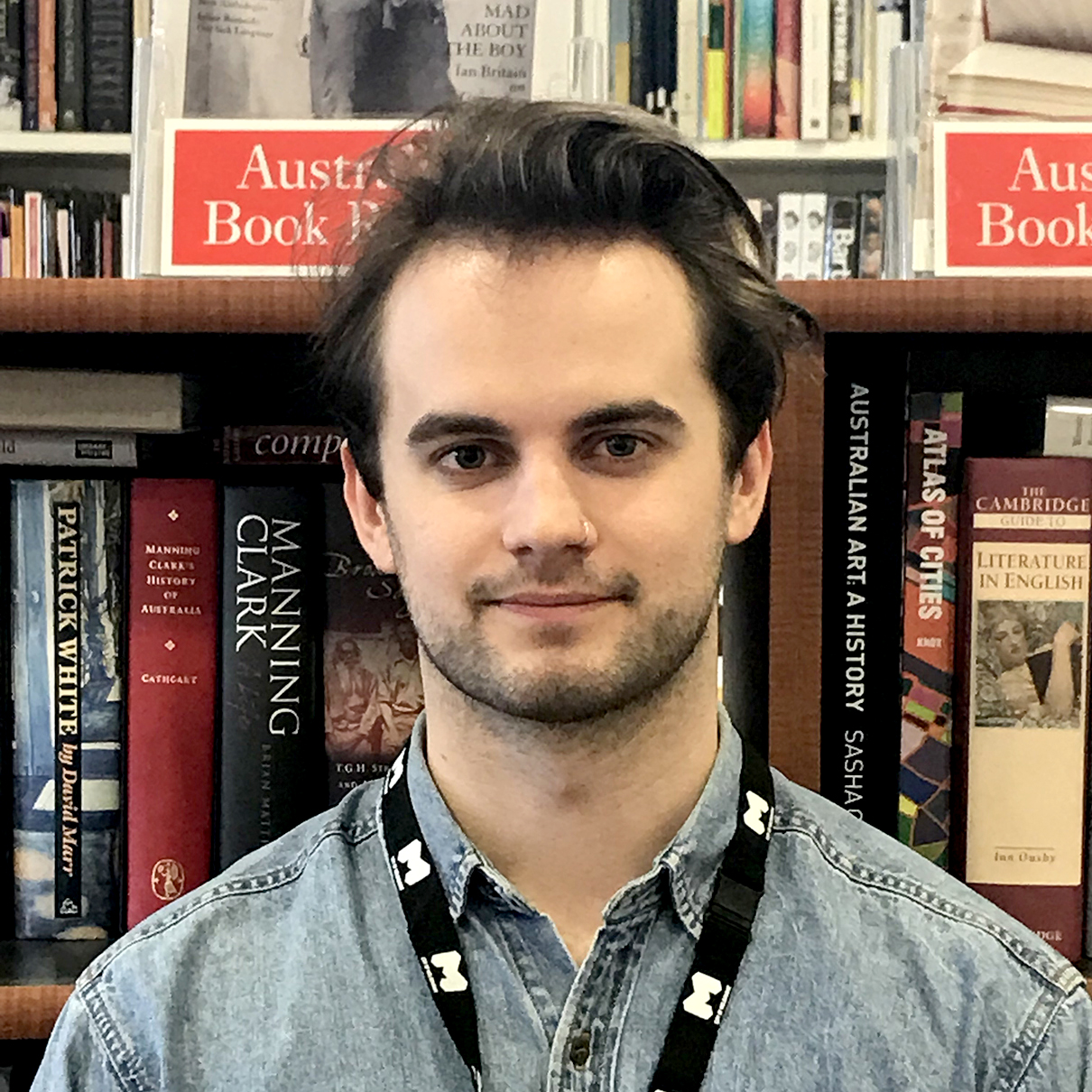 Jack CallilThanks to everyone who recently applied for the 2018–19 ABR Editorial Internship. Jack Callil has now joined the staff as Assistant Editor. Jack is not the only editor in his family. His great-aunt, Carmen Callil, founder of Virago Press and long-time managing director of Chatto & Windus, is one of the most illustrious publishers Australia has produced. Carmen (who was appointed Dame Commander of the Order of the British Empire in 2017) is our Publisher of the Month.
Jack CallilThanks to everyone who recently applied for the 2018–19 ABR Editorial Internship. Jack Callil has now joined the staff as Assistant Editor. Jack is not the only editor in his family. His great-aunt, Carmen Callil, founder of Virago Press and long-time managing director of Chatto & Windus, is one of the most illustrious publishers Australia has produced. Carmen (who was appointed Dame Commander of the Order of the British Empire in 2017) is our Publisher of the Month.
Birthday largesse
To celebrate our fortieth birthday and to spread the word about the magazine, we’re partnering with some of Australia’s major bookshops and offering free copies of the magazine to customers who purchase books worth $40 or more. This month our partner is the excellent Avenue Bookstore. Staff there have 500 copies to give away in their three outlets: Albert Park, Elsternwick, and Richmond. Buy the book, then read the review. Be quick though.
ABR salutes the work of our fantastic independent bookshops. More promotions of this kind will follow.
John Bell is Back as the Miser
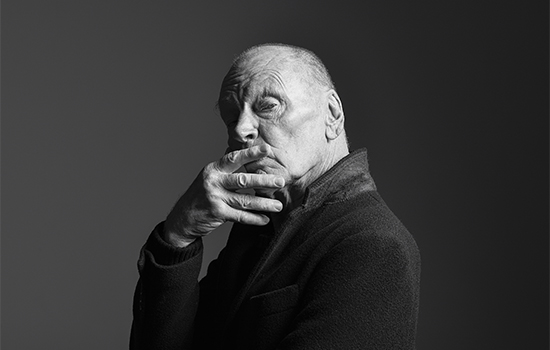 John Bell in Bell Shakespeare's 2019 production of The Miser
John Bell in Bell Shakespeare's 2019 production of The Miser
Bell Shakespeare has announced the first of its 2019 productions: Molière’s comedy The Miser, which marks the return of the company’s founder John Bell in the titular role. Bell stepped away from the company in 2015, having created it in 1990. Bell will play the tyrannical penny-pincher Harpagon, a bourgeois deviant prepared to sacrifice everything, whether it be his children or his dignity, to come out on top.
Australian playwright Justin Fleming has been assigned as translator of the Bell Shakespeare adaption, who has worked previously on other well-known Molière satires such as Tartuffe and The Misanthrope. Directing The Miser will be Peter Evans, Artistic Director of Bell Shakespeare, who said the decision to bring back John Bell as Harpagon was ‘too tantalising to resist’. ‘Having the opportunity to invite back our Founding Director to Bell Shakespeare, in a role that will have you laughing in the aisles, if not a little scandalised by the naughtiness of Justin Fleming’s translation, is a pleasure.’
Tickets to The Miser are exclusively available to Bell Shakespeare Members now; they will go on sale to the general public in November 2018.
The Miser will play at Sydney Opera House from 2 March–6 April 2019; Canberra Theatre Centre from 11–20 April 2019; and Arts Centre Melbourne from 25 April–12 May 2019.
Geoffrey Rush Pulls Out of Twelfth Night
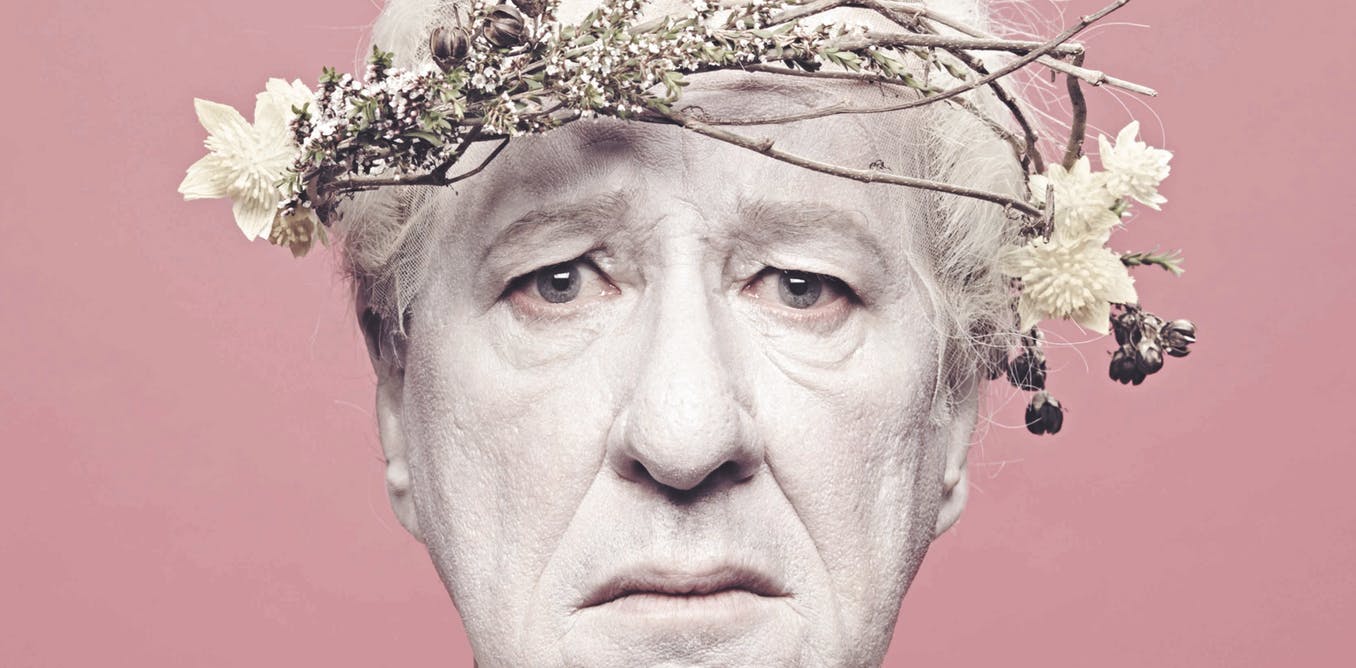 Promotional image of Geoffrey Rush as King Lear
Promotional image of Geoffrey Rush as King Lear
Actor Geoffrey Rush has announced that due to medical advice he is withdrawing from the Melbourne Theatre Company’s production of Twelfth Night, where he was set to play the role of Malvolio. ‘I do so with the greatest regret,’ Rush said in a statement. ‘I know that I would not be able to provide the necessary creative spirit and the professional stamina required for the project.’
Brett Sheehy, Artistic Director and CEO of Melbourne Theatre Company, said the company is seeking a replacement.
Twelfth Night will be performed at Melbourne Theatre Company from 12 to 29 December 2018.
Brisbane Writer Wins Drama Award
Brisbane playwright David Megarrity has won the Queensland Premier’s Drama Award 2018–19 for his play The Holidays. Selected from over ninety entries, Megarrity’s delicate, family-oriented play was chosen ahead of fellow finalists Hannah Belansky for‘don’t ask what the bird look like’, and Anna Yen for Slow Boat.
‘David Megarrity’s The Holidays is a disarming meditation on mortality and father son relationships,’ said Queensland Theatre Artistic Director Sam Strong. ‘It’s a delicious combination of high-tech ambition and low-fi theatricality. David Megarrity, speaking of his winning work, said, ‘This visual theatre piece combines live performers, projection, audience participation and music to explore the impact of dementia, as experienced by one family, focussing on the connections between son, father and grandfather – told through the eyes of a young person.’







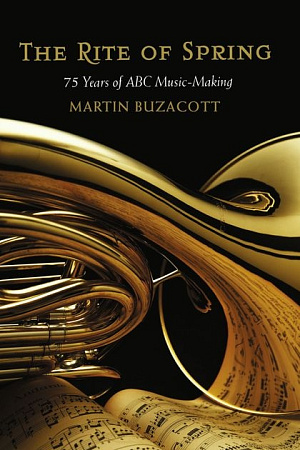
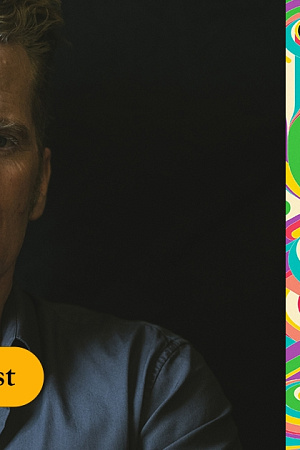


Leave a comment
If you are an ABR subscriber, you will need to sign in to post a comment.
If you have forgotten your sign in details, or if you receive an error message when trying to submit your comment, please email your comment (and the name of the article to which it relates) to ABR Comments. We will review your comment and, subject to approval, we will post it under your name.
Please note that all comments must be approved by ABR and comply with our Terms & Conditions.